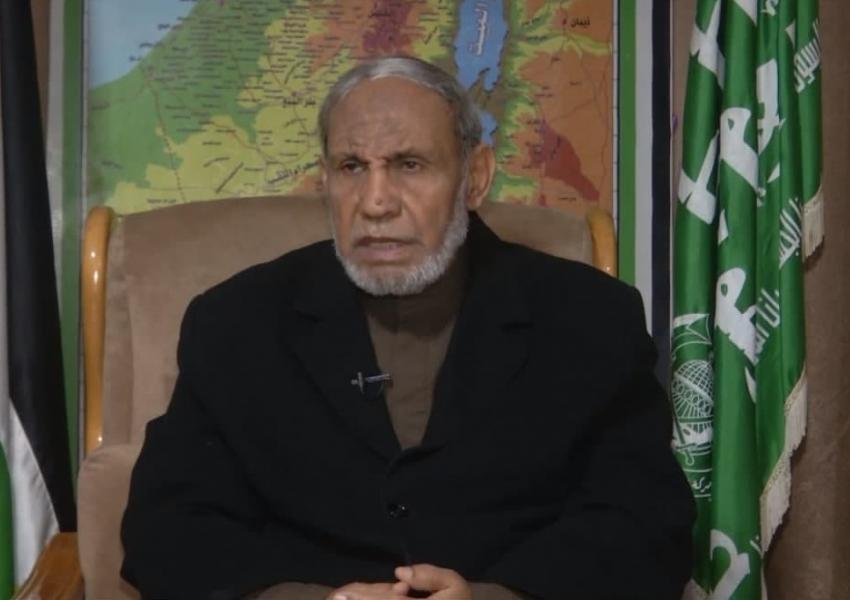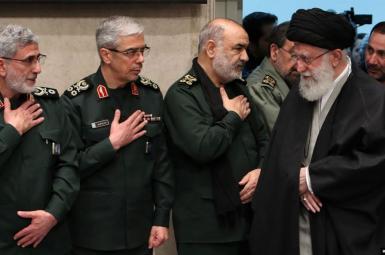
Soleimani Sent Us Kornet Missiles, Millions Of Dollars, Say Hamas Officials
As the first anniversary approaches of the death of Qasem Soleimani, commander of Iran’s Qods (Quds) Force, two senior Palestinians have praised his help for Palestinian resistance groups, including handing over suitcases filled with cash.
In an interview on Sunday with Iran’s state-run Arabic news channel Al-Alam, Mahmoud Al-Zahar, a founding member of Hamas, said Soleimani passed him suitcases containing $22 million during a visit to Tehran in 2006 as foreign minister in the Palestinian administration of prime minister Ismail Haniyeh.
According to Al-Zahar, President Mahmoud Ahmadinejad arranged for a meeting with Soleimani to help besieged Gaza with humanitarian aid and pay for government: “The decision was made fast. I had to leave the next day. At the airport I saw several suitcases containing $22 million. Soleimani had agreed to more, but there were only nine of us and we couldn’t carry more than that. Each suitcase weighed 40 kg.”
Abu Mujahid, spokesman for the Popular Resistance Committees, a Palestinian group closely allied to Iran, who will participate in the ceremonies honoring Soleimani’s death anniversary in Qom, also spoke of support given by the late Qods commander to the “Palestinian resistance.”
“Martyr Soleimani…provided them with missiles that can destroy targets in the heart of Tel Aviv, Haifa and other cities of the Zionist regime,” he told the Tasnim news agency “When Haj Qasem delivered Kornet missiles to the Palestinian Resistance, a huge change was made in the deterrence balance in regards to Zionist regime.”
The Kornet is a Russian-made ground-fired missile. Primarily an anti-tank weapon, it has been present in Gaza since at least 2010. A Jazeera television documentary in September, with portions re-aired later on its English channel, interviewed missile engineers in Hamas’ military wing, Al-Qassam Brigades, who referred to missiles fashioned from remnants of Israeli munitions and water pipes, as well as Kornet and longer-range Fajr rockets supplied by Iran.
Iran began funding Hamas in the 1980s and by late 2000s contributed a substantial portion of Hamas’ budget.
But international sanctions in the early 2010s made transferring funds difficult, and ties strained after 2012 with Iran supporting President Bashar Al-Assad in the Syrian war as Hamas backed Syrian rebels and withdrew its exiled headquarters from Damascus. Relations have improved in recent times, with Haniyeh, as head of the Hamas political bureau, visiting Tehran in January in the wake of Soleimani’s assassination.
Despite its serious economic crisis after three years of stringent US sanctions, Iran has continued support, though reportedly at a reduced level.
In May 2019, after clashes between Palestinian fighters and the Israeli military, China’s Xinhua reported that the Iranian committee to organize activities marking Quds Day had paid $651,000 to 1,540 Palestinian families who had suffered in the conflict, with $600 going to married people and $200 to single people. The money, according to Xinhua, was delivered during a conference in Gaza.
Last week, on December 22, Israeli Defense Minister and Alternative Prime Minister Benny Ganz signed an order to seize $4 million transferred from Iran to Hamas. The decree targets Gaza businessman Zuhir Shamalch and his money-changing outfit Al-Mutahadun.









